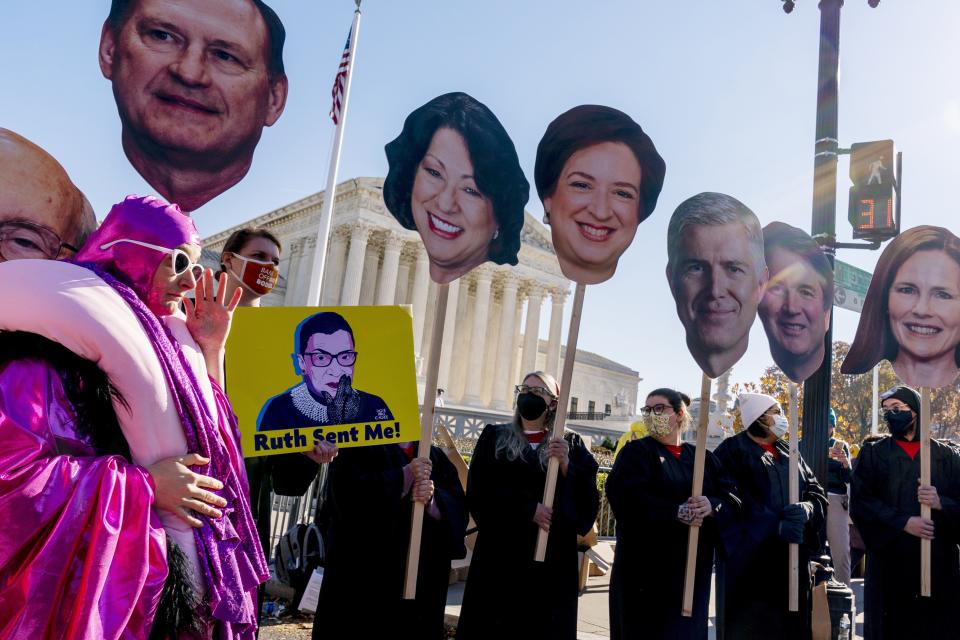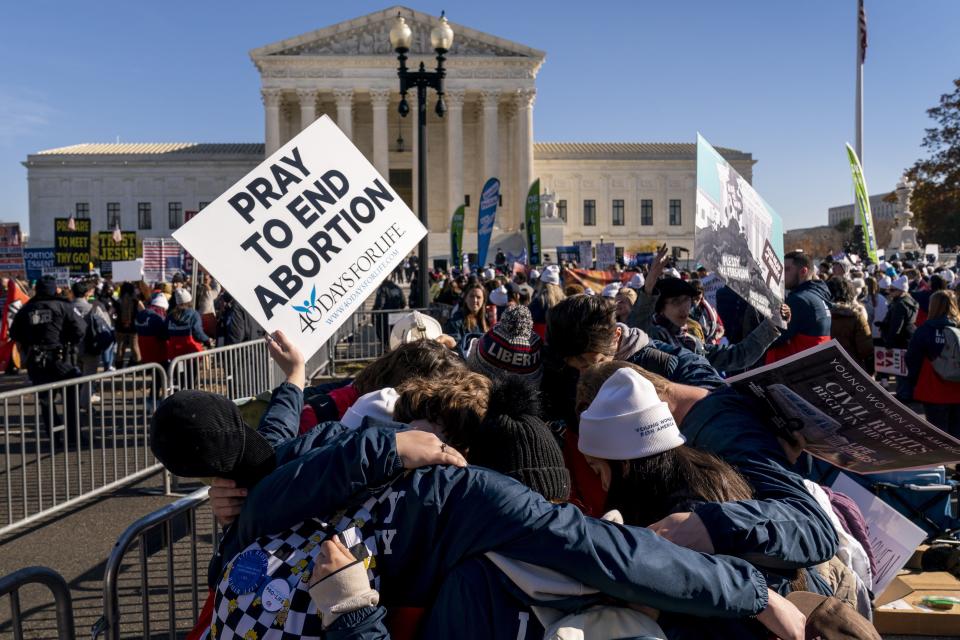New York is not Mississippi on abortion rights, but must remain vigilant | Opinion
- Oops!Something went wrong.Please try again later.
On Wednesday, the Supreme Court heard oral arguments on Dobbs v. Jackson Women’s Health Organization, a challenge to a Mississippi law that bans abortion at 15 weeks of pregnancy. In this case, the right to abortion is not the only thing at stake.
The state of Mississippi's argument threatens the Supreme Court’s precedent involving fundamental liberties — including the rights to marry, use contraception, and how we raise our families. This is a threat to all of us, regardless of our sex, age, race, or socioeconomic status, and our ability to live with autonomy, dignity, and equality.
At this point it is frankly impossible to separate politics from legal arguments when it comes to abortion rights.

Justice Stephen Breyer warned as much when he said: "It is particularly important to show that what we do in overturning a case is grounded in principle and not social pressure." And Justice Sonia Sotomayor underscored that point by asking: “Will this institution survive the stench that this creates in the public perception that the constitution and its reading are just political acts? I don’t see how it’s possible.”
The significance of the outcome of this case cannot be overstated. What’s at stake is a potential loss of nearly 50 years of settled precedent. Across the country, politicians have steadily pushed hostile abortion restrictions, defunded essential community health centers and programs, and stacked federal courts to ensure these harmful policies stay in place.
Let’s be clear about who is hurt the most by abortion restrictions and bans: Women, Black, Indigenous and other people of color, the LGBTQI+ community, immigrants, young people, those working to make ends meet and people with disabilities. History has shown us that individuals with means will find a way to access reproductive services. Abortion bans are deeply rooted in stigma and shame, and are directly linked to racism, classism, misogyny, and white supremacy.
More perspective: We condemn from afar but where's the empathy when it comes to abortion?
The situation in Mississippi was already dire before the 2018 law that banned abortion after 15 weeks of pregnancy. The state has long been an abortion care desert with some of the most restrictive existing abortion laws in the country. And we cannot lose sight of the fact that the Supreme Court has also allowed a blatantly unconstitutional ban in Texas to remain in effect, which is currently eviscerating access to care.
New York, thankfully, has a different track record. Many don’t realize that our state legalized abortion access in 1970, three years before Roe v. Wade. However, these laws hadn’t been updated since that moment in history until the Reproductive Health Act was passed in 2019. The RHA both modernized New York’s laws and aligned them with the standards afforded by Roe.
Both Roe and the RHA represent a baseline — not a finish line. Patient-centered access to abortion in New York, while a far sight better than what’s available in much of the rest of the country, is far from perfect.

There is tremendous work to be done to reduce barriers, and we must recognize that even with good laws on the books, abortion is not a right if people cannot meaningfully access it. New York must make a commitment, honor its legacy as an access state, and bolster its ability to be a haven for those who wish to exercise autonomy over their own bodies and control their reproductive destinies.
New York cannot afford to stay silent. At Planned Parenthood, our doors remain open, and we are committed to providing the highest standards of sexual and reproductive health care to all who need it — including abortion. The elected officials at all levels of our government must hear from all of us and know that we are here and standing in solidarity for abortion justice for all people. We need to remind them that more than 70% of Americans support safe and legal abortion and want to see Roe stand.
This isn’t a hypothetical crisis. This isn’t a drill. Now is the time to stand up. Our fundamental rights are never negotiable.
Chelly Hegan is president and CEO of Upper Hudson Planned Parenthood. Georgana Hanson is interim president and CEO of Planned Parenthood Empire State Acts, based in Albany.
This article originally appeared on Rockland/Westchester Journal News: NY is not Mississippi on abortion rights, but must remain vigilant

